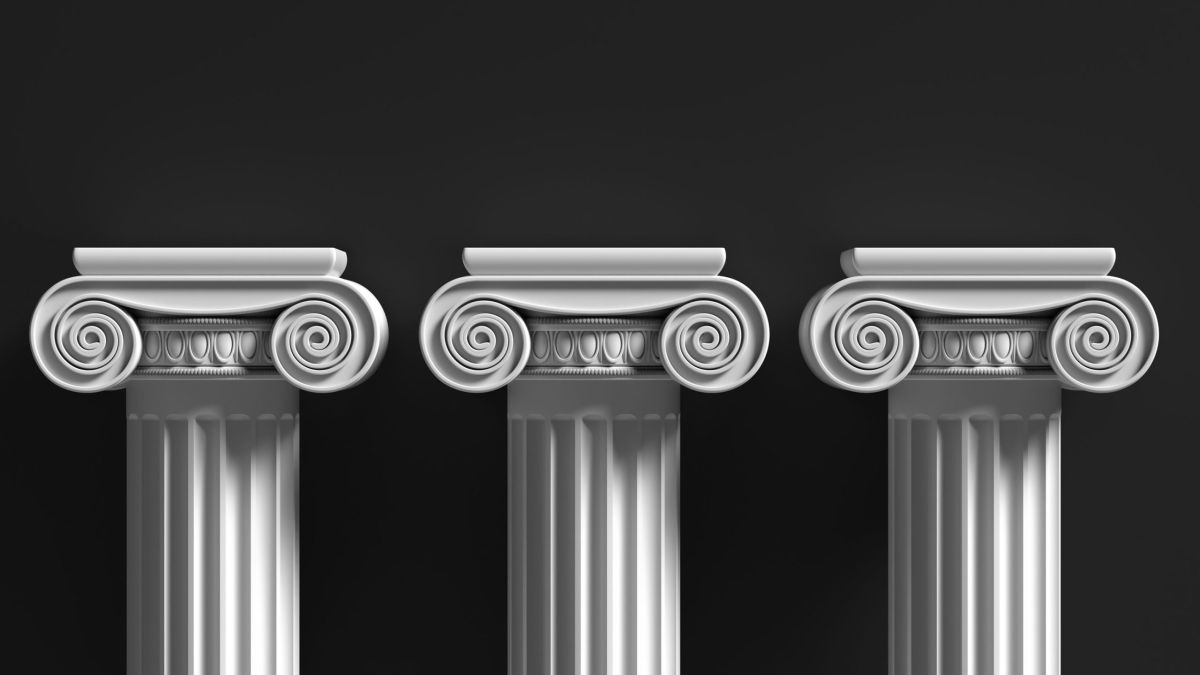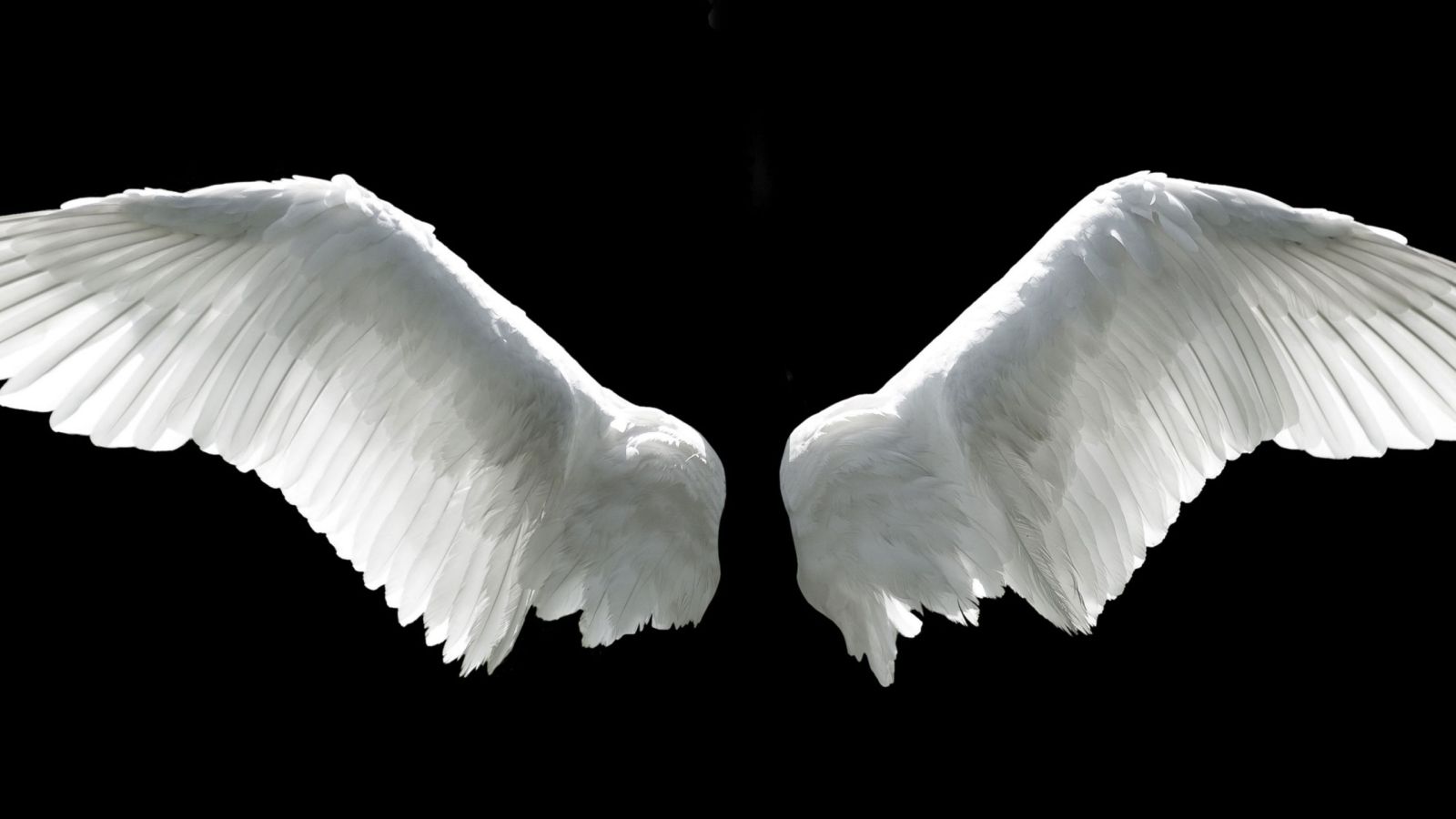The Three Fundamental Principles
Shaykh al-Islām Muḥammad ibn ʿAbd al-Wahhāb


Page 2 of 3
The Second Principle: Knowledge Of The Religion Of Islām
The second principle is: The knowledge of the religion of Islām with proofs. So Islām is to submit to Allāh by worshipping Him alone (Tawḥīd ), to yield to Him in obedience and to dissociate oneself from polytheism (Shirk).
Islām is of three levels: Islām, Imān and Iḥsān. Each of these three levels has pillars.
The First Level: Islām
The pillars of Islām are five in number. The evidence from the Sunnah is the narration of Ibn ʿUmar (رضي الله عنه) who said that Allāh’s Messenger (ﷺ) said: “Islām is built upon five: the testimony that none has the right to be worshipped except Allāh and that Muḥammad is the Messenger of Allāh, to establish the Prayer, to pay the Zakāt, to fast the month of Ramadān and to perform Hajj to the Sacred House of Allāh.”
The proof for the testimony of faith is the saying of Allāh, the Most High:
شَهِدَ اللَّهُ أَنَّهُ لَا إِلَٰهَ إِلَّا هُوَ وَالْمَلَائِكَةُ وَأُولُو الْعِلْمِ قَائِمًا بِالْقِسْطِ ۚ لَا إِلَٰهَ إِلَّا هُوَ الْعَزِيزُ الْحَكِيمُ ﴿١٨﴾
Allāh bears witness that none has the right to be worshipped but He, and so do the Angels and the people of knowledge. It is He who maintains justice, none has the right to be worshipped but He, the Almighty, the All-Wise.
[Ālī ʿImrān, 3:18]
And the meaning of this testimony is that there is none truly worthy of worship except for Allāh.
The statement of negation, “Lā ilāhaha: there is no deity” is a negation of everything that is worshipped besides Allāh.
And the statement “illallāh: except Allāh” is to affirm the worship for Allāh alone. He has no partners in worship of Him just as He has no partners who share in His Sovereignty and Dominion.
The explanation of that is made clear in the saying of Allāh, the Most High:
وَإِذْ قَالَ إِبْرَاهِيمُ لِأَبِيهِ وَقَوْمِهِ إِنَّنِي بَرَاءٌ مِّمَّا تَعْبُدُونَ ﴿٢٦﴾ إِلَّا الَّذِي فَطَرَنِي فَإِنَّهُ سَيَهْدِينِ ﴿٢٧﴾ وَجَعَلَهَا كَلِمَةً بَاقِيَةً فِي عَقِبِهِ لَعَلَّهُمْ يَرْجِعُونَ ﴿٢٨﴾
And recall when Ibrāhīm said to his father and his people, ‘I am free from what you worship except the worship of the One who created me and it is He who will guide me.’ And Ibrāhīm made the testimony of worship a word lasting among his offspring, that they may turn back to the obedience of their Lord.
[al-Zukhruf, 43:26-28]
And likewise the saying of Allāh, the Most High:
قُلْ يَا أَهْلَ الْكِتَابِ تَعَالَوْا إِلَىٰ كَلِمَةٍ سَوَاءٍ بَيْنَنَا وَبَيْنَكُمْ أَلَّا نَعْبُدَ إِلَّا اللَّهَ وَلَا نُشْرِكَ بِهِ شَيْئًا وَلَا يَتَّخِذَ بَعْضُنَا بَعْضًا أَرْبَابًا مِّن دُونِ اللَّهِ ۚ فَإِن تَوَلَّوْا فَقُولُوا اشْهَدُوا بِأَنَّا مُسْلِمُونَ ﴿٦٤﴾
Say: O People of the Book, come to a common word between us and you, and that is: we shall not worship except Allāh, and we shall not associate partners with Him in worship; and we shall not take from ourselves people as lords besides Allāh. So if after this they turn away, inform them: bear witness that we have submitted ourselves to Allāh as Muslims.
[Ālī ʿImrān, 3:64]
The evidence for the testimony, ‘that Muḥammad is the Messenger of Allāh’ is the saying of Allāh, the Most High:
لَقَدْ جَاءَكُمْ رَسُولٌ مِّنْ أَنفُسِكُمْ عَزِيزٌ عَلَيْهِ مَا عَنِتُّمْ حَرِيصٌ عَلَيْكُم بِالْمُؤْمِنِينَ رَءُوفٌ رَّحِيمٌ ﴿١٢٨﴾
There has come to you a Messenger from among yourselves. It grieves him that you should receive any injury or hardship, and he is anxious over you. To the believers he is full of pity and kindness, and he is merciful
[al-Tawbah, 9:128]
The meaning of the testimony, ‘Muḥammad is the Messenger of Allāh’ is [i] to obey him in whatever he commanded, [ii] to believe in whatever he said, [iii] to keep away from whatever he forbade and prohibited [iv] and not to worship Allāh except as he prescribed.
The evidence for the Prayer, the Zakāt, and the meaning of Tawḥīd is the saying of Allāh, the Most High:
وَمَا أُمِرُوا إِلَّا لِيَعْبُدُوا اللَّهَ مُخْلِصِينَ لَهُ الدِّينَ حُنَفَاءَ وَيُقِيمُوا الصَّلَاةَ وَيُؤْتُوا الزَّكَاةَ ۚ وَذَٰلِكَ دِينُ الْقَيِّمَةِ ﴿٥﴾
They were not commanded except to worship Allāh, making their worship sincerely and solely for Him, free from idolatry; and to establish the Prayer and to pay the Zakāh, and that is the right and true Religion.
[al-Bayyinah, 98:5]
The evidence for fasting is the saying of Allāh, the Most High:
يَا أَيُّهَا الَّذِينَ آمَنُوا كُتِبَ عَلَيْكُمُ الصِّيَامُ كَمَا كُتِبَ عَلَى الَّذِينَ مِن قَبْلِكُمْ لَعَلَّكُمْ تَتَّقُونَ ﴿١٨٣﴾
O you who believe, fasting has been prescribed for you just as it was prescribed upon those who came before you, so that you may become pious.
[al-Baqarah, 2:183]
The evidence for Hajj is the saying of Allāh, the Most High:
وَلِلَّهِ عَلَى النَّاسِ حِجُّ الْبَيْتِ مَنِ اسْتَطَاعَ إِلَيْهِ سَبِيلًا ۚ وَمَن كَفَرَ فَإِنَّ اللَّهَ غَنِيٌّ عَنِ الْعَالَمِينَ ﴿٩٧﴾
And Ḥajj to the House (Kaʾbah) is a duty that mankind owes to Allāh for those who can afford the expenses. And whoever denies its obligation, then Allāh is not in need of any of the creation.
[Ālī ʿImrān, 3:97]
The second level is Imān, and it has seventy and odd branches.
Its highest level is the saying, lā ilāha illallāh (none has the right to be worshipped except Allāh), whilst the lowest level of Imān is to remove something harmful from the path, and shyness also is a branch of Imān.
Imān has six pillars: That you believe in Allāh, His Angels, His Books, His Messengers, the Last Day and the Pre-Decree, its good and its evil, all of it is from Allāh.
The proof for these six pillars is in the saying of Allāh, the Most High:
لَيْسَ الْبِرَّ أَن تُوَلُّوا وُجُوهَكُمْ قِبَلَ الْمَشْرِقِ وَالْمَغْرِبِ وَلَٰكِنَّ الْبِرَّ مَنْ آمَنَ بِاللَّهِ وَالْيَوْمِ الْآخِرِ وَالْمَلَائِكَةِ وَالْكِتَابِ وَالنَّبِيِّينَ وَآتَى الْمَالَ عَلَىٰ حُبِّهِ ذَوِي الْقُرْبَىٰ وَالْيَتَامَىٰ وَالْمَسَاكِينَ وَابْنَ السَّبِيلِ وَالسَّائِلِينَ وَفِي الرِّقَابِ وَأَقَامَ الصَّلَاةَ وَآتَى الزَّكَاةَ وَالْمُوفُونَ بِعَهْدِهِمْ إِذَا عَاهَدُوا ۖ وَالصَّابِرِينَ فِي الْبَأْسَاءِ وَالضَّرَّاءِ وَحِينَ الْبَأْسِ ۗ أُولَٰئِكَ الَّذِينَ صَدَقُوا ۖ وَأُولَٰئِكَ هُمُ الْمُتَّقُونَ ﴿١٧٧﴾
It is not piety that you should turn your faces to the east or the west. Rather piety is the piety of those who believe in Allāh, the Last Day, the Angels, the Books, and the Prophets. He gives wealth, in spite of his love for it, to his relatives, the orphans, the needy, the wayfarer, those who ask and to set slaves free. He establishes the Prayer and he pays the Zakāt. They fulfill their agreements when they make them. They are patient in times of extreme poverty and hardship and during battle. Such are the people of truth and such are the pious.
[al-Baqarah, 2:177]
The proof for the Pre-Decree is in the saying of Allāh, the Most High:
إِنَّا كُلَّ شَيْءٍ خَلَقْنَاهُ بِقَدَرٍ ﴿٤٩﴾
Verily We have created all things in accordance to the Pre-Decree.
[al-Qamar, 54:49]
The Third Level: Al-Iḥsān
The third level is Iḥsān, and it is one pillar which is that you worship Allāh alone as if you see Him, and even though you see Him not, He certainly sees you.
The proof is in the saying of Allāh, the Most High:
وَمَن يُسْلِمْ وَجْهَهُ إِلَى اللَّهِ وَهُوَ مُحْسِنٌ فَقَدِ اسْتَمْسَكَ بِالْعُرْوَةِ الْوُثْقَىٰ ۗ وَإِلَى اللَّهِ عَاقِبَةُ الْأُمُورِ ﴿٢٢﴾
And whosoever submits his face to Allāh, while he is a doer of good deeds (muhsin), then he has grasped the most trustworthy hand-hold.
[Luqmān, 31:22]
And in His saying, the Most High:
إنَّ اللَّهَ مَعَ الَّذِينَ اتَّقَوا وَّالَّذِينَ هُم مُّحْسِنُونَ ﴿١٢٨﴾
Truly, Allāh is with those who fear Him and keep their duty unto Him, and those who are the doers of good (muhsinūn).
[al-Naḥl, 16:128]
Also in His saying:
وَمَن يَتَوَكَّلْ عَلَى اللَّهِ فَهُوَ حَسْبُهُ ۚ ﴿٣﴾
And whosoever puts his trust in Allāh, then He will suffice him.
[al-Ṭalāq, 65:3]
And His saying, the Most High:
تَوَكَّلْ عَلَى الْعَزِيزِ الرَّحِيمِ ﴿٢١٧﴾ الَّذِي يَرَاكَ حِينَ تَقُومُ ﴿٢١٨﴾ وَتَقَلُّبَكَ فِي السَّاجِدِينَ ﴿٢١٩﴾ إِنَّهُ هُوَ السَّمِيعُ الْعَلِيمُ ﴿٢٢٠﴾
And put your trust in the All-Mighty, the Most Merciful, Who sees you when you stand up in Prayer, and your movements among those who fall prostrate. Verily! He, only He, is the All Hearer, the All-Knower.
[al-Shuʿarāʾ, 26:217-220]
Also the saying of Allāh, the Most High:
وَمَا تَكُونُ فِي شَأْنٍ وَمَا تَتْلُو مِنْهُ مِن قُرْآنٍ وَلَا تَعْمَلُونَ مِنْ عَمَلٍ إِلَّا كُنَّا عَلَيْكُمْ شُهُودًا إِذْ تُفِيضُونَ فِيهِ ۚ ﴿٦١﴾
There is not a thing you do, O Prophet, nor any portion of the Qur’ān that you recite―neither do you, O people, do anything, whether good or evil, except that We are a witness over you when you do it.
[Yūnus, 10:61]
The proof for iḥsān from the Sunnah is the well-known Hadīth of Jibrīl that was narrated from ʿUmar Ibn Al-Khattāb (رضي الله عنه) who said:
“Whilst we were sitting with the Prophet (ﷺ) a man entered upon us. His garments were exceedingly white and his hair exceedingly black, there were no signs of travel upon him yet not a single one of us knew who he was. He came and sat in front of the Prophet (ﷺ) putting his knees against his knees and placing his hands on his thighs. He said: ‘O Muḥammad, tell me about Islām.’ The Prophet (ﷺ) replied: ‘It is that you testify that none has the right to be worshipped except Allāh and that Muḥammad is the Messenger of Allāh, that you establish the Prayer, pay the Zakāt, fast the month of Ramadān and perform Hajj to the
House (Kaʾbah) if you have the ability to do so.’
The man said: ‘You have spoken the truth.’ So we were surprised with him, that he asked the question and then affirmed the truthfulness of it. The man then asked: ‘Tell me about Imān.’ The Prophet (ﷺ) replied: ‘That you believe in Allāh, His Angels, His Books, His Messengers, the Last day and the Pre-Decree, its good and evil.’ The man said: ‘You have spoken the truth.’
He then asked: ‘Tell me about Iḥsān.’ He replied: ‘That you worship Allāh as if you see Him, and though you see Him not, indeed He sees you.’ The man then asked: ‘Tell me about the Hour.’ The Prophet (ﷺ) replied: ‘The one being asked is no more aware concerning it than the one asking.’ The man continued: ‘Inform me of its signs.’
The Prophet (ﷺ) said: ‘When a slave-woman gives birth to her mistress; when you see barefoot, unclothed, destitute shepherds competing in the building of tall buildings.’”
ʿUmar (رضي الله عنه) said: “So he left, and we remained behind for a while. Then the Prophet (ﷺ) said: ‘O ʿUmar, do you know who the questioner was?’ We replied: ‘Allāh and His Messenger know better.’ He said: ‘That was Jibrīl who came to you to teach you matters of your Religion.’”12
Most Popular: Last 30 Days

















